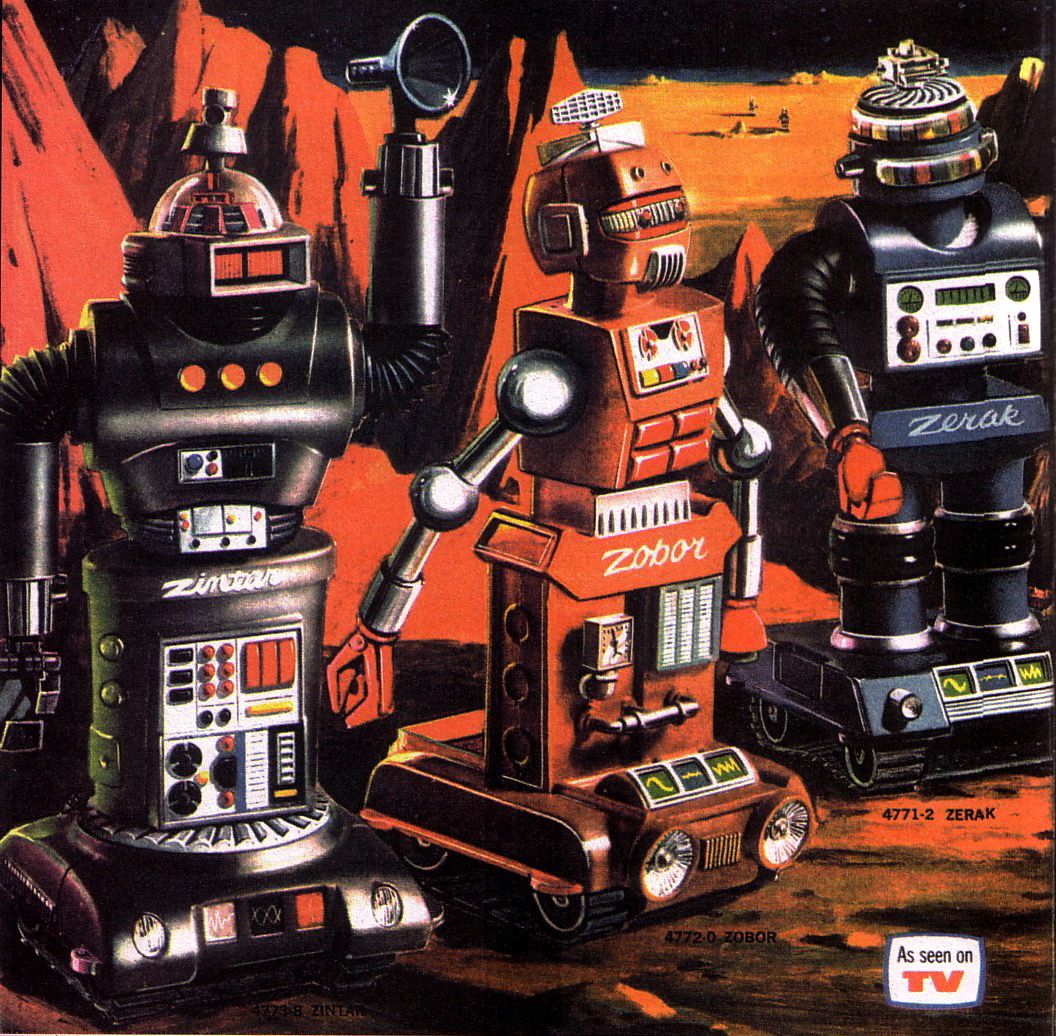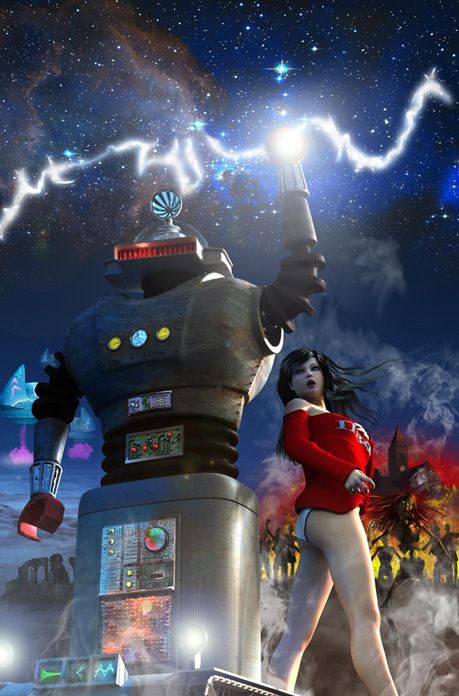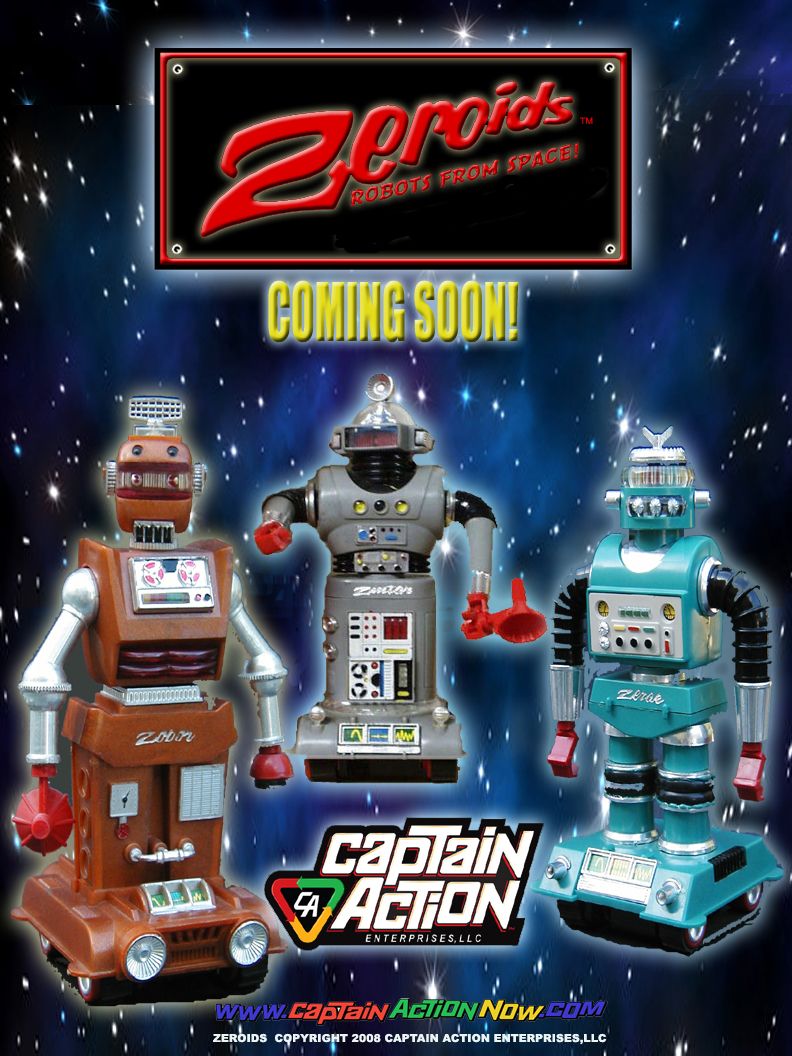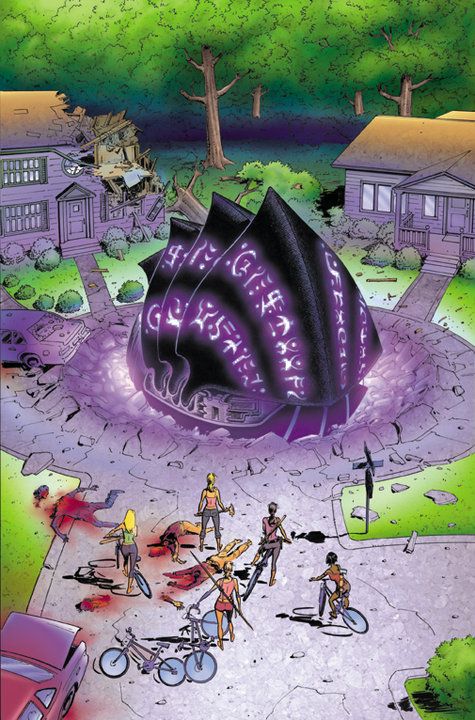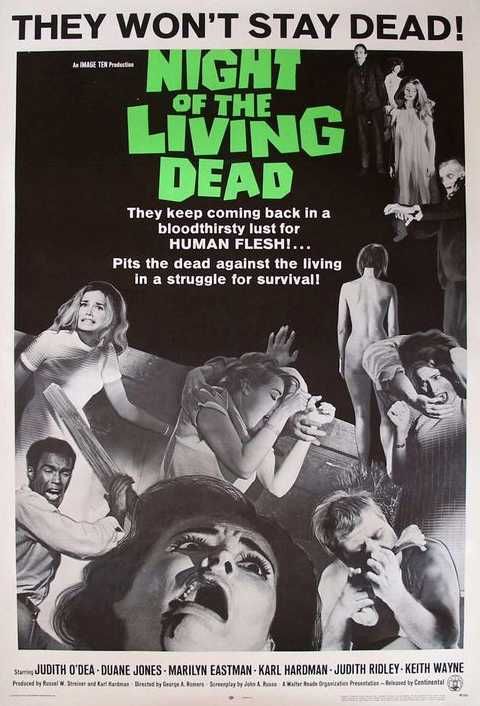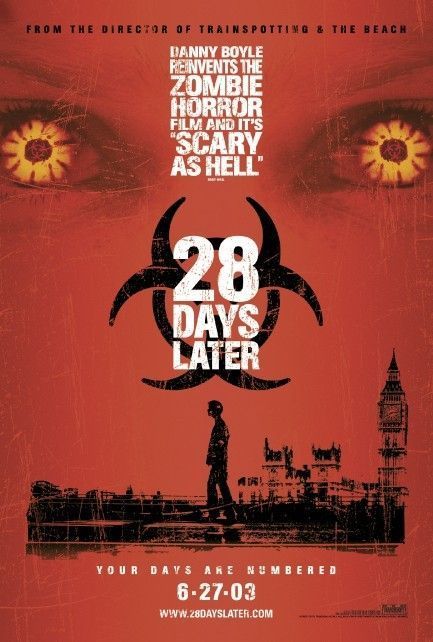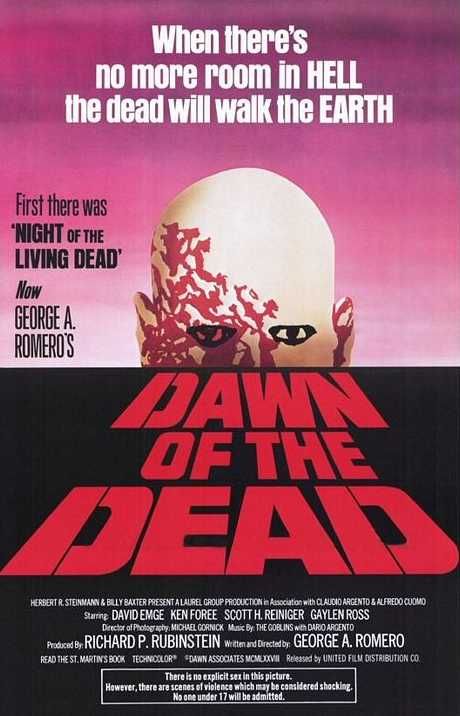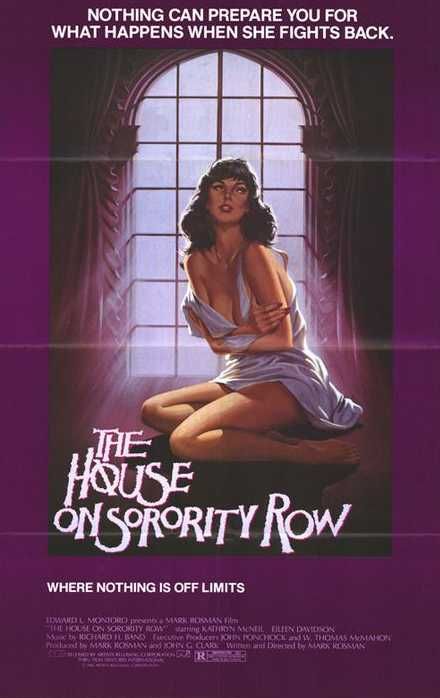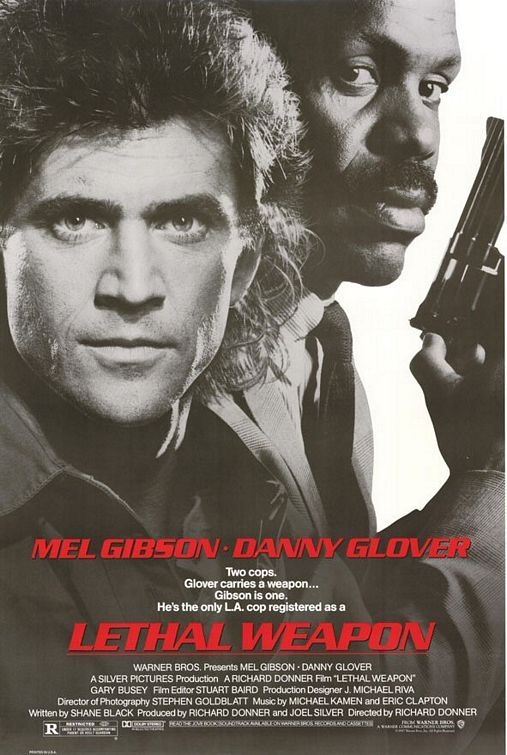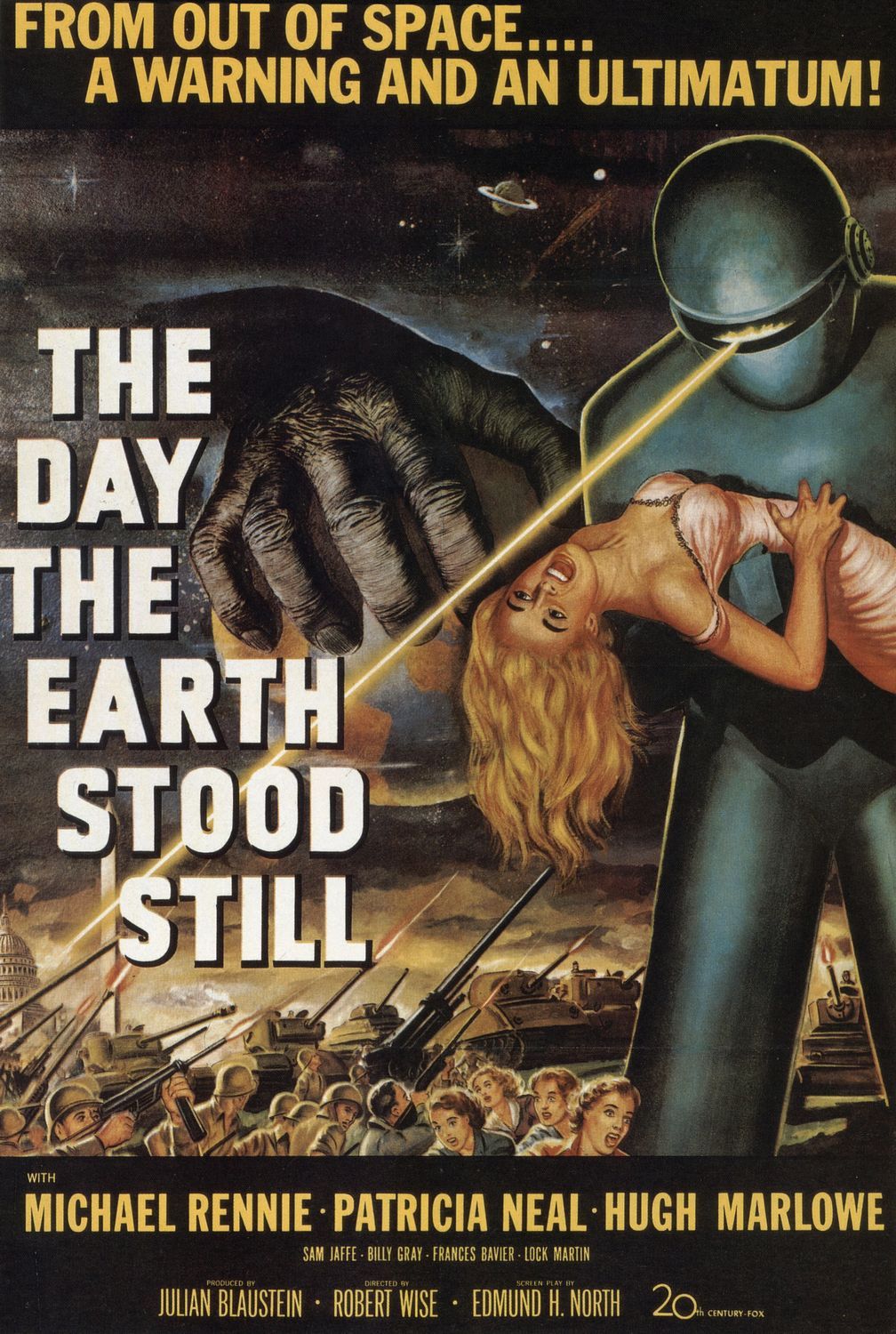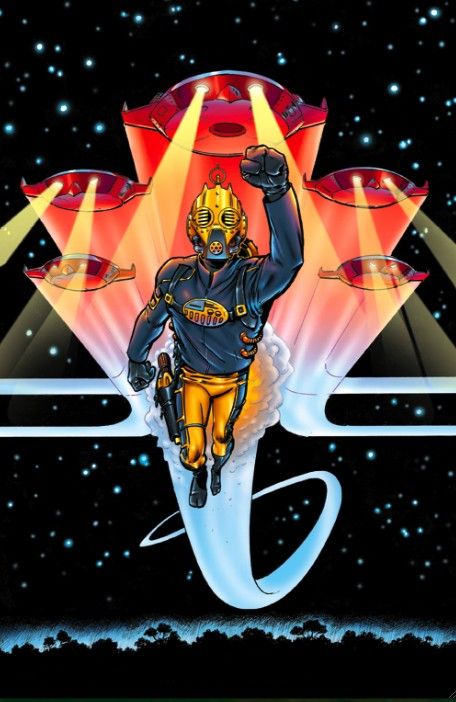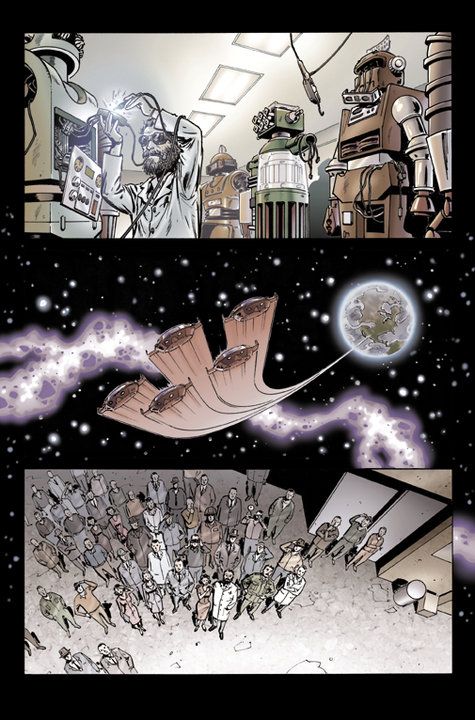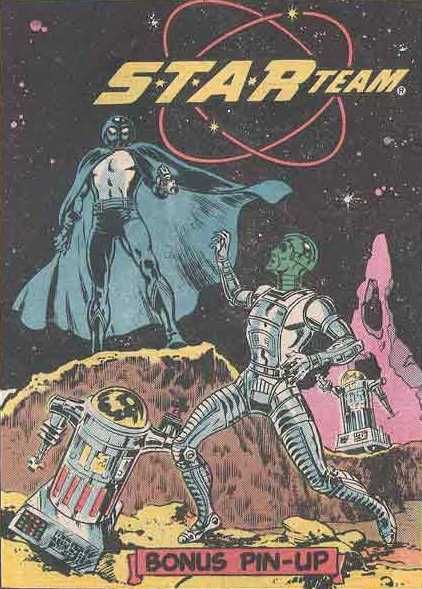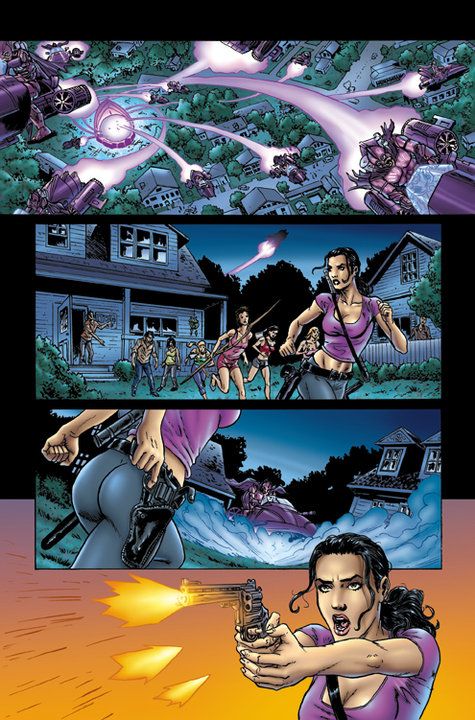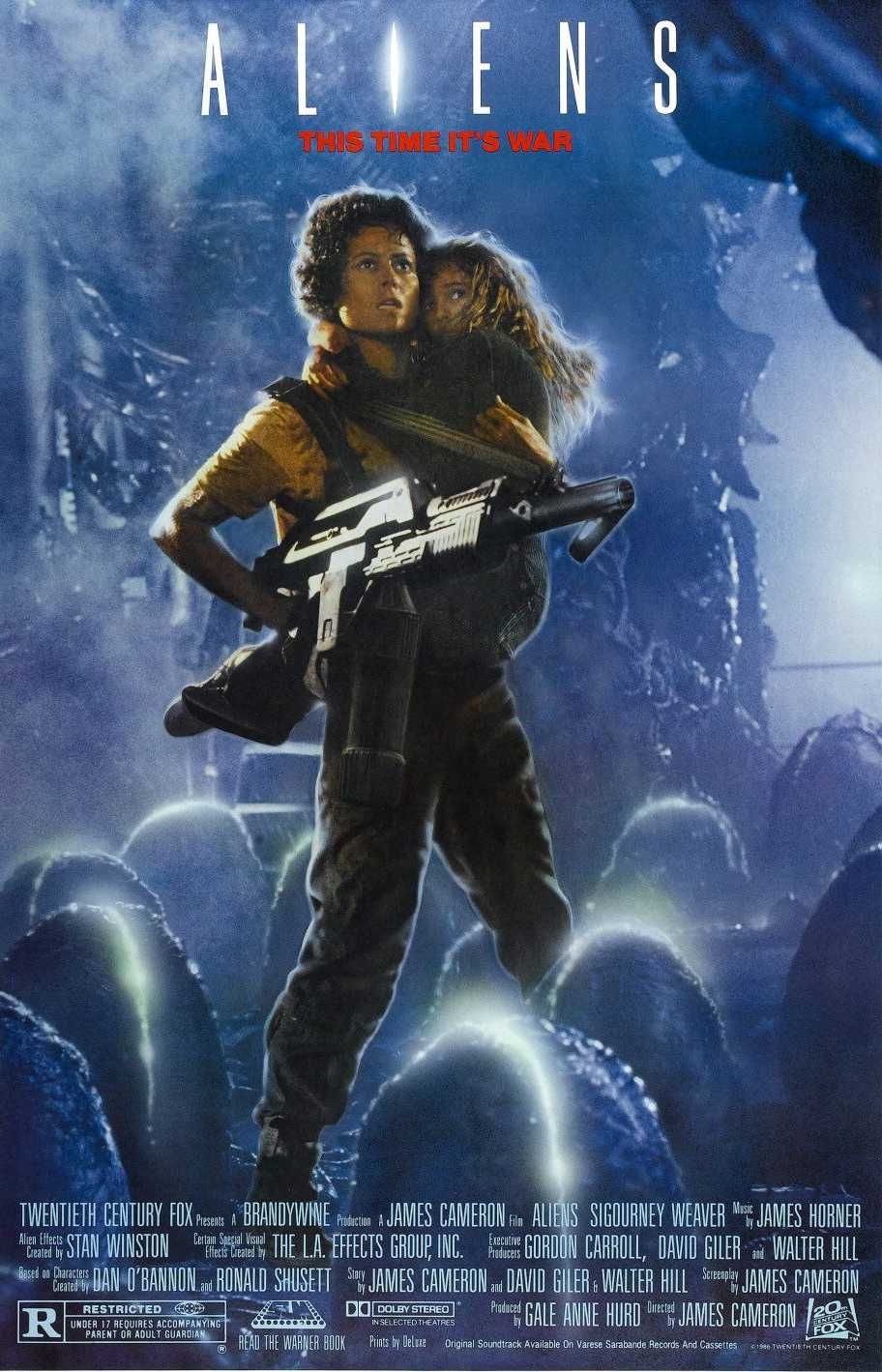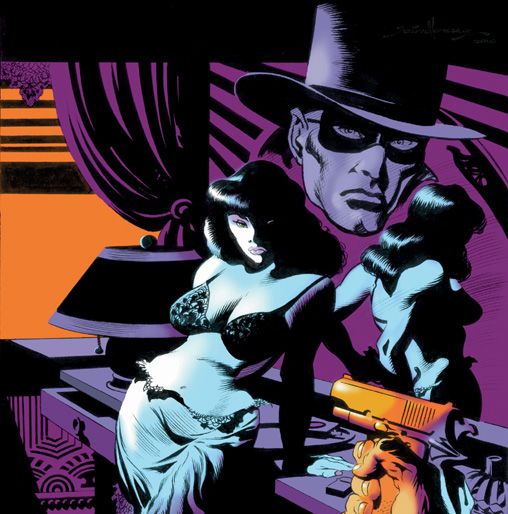When I attended C2E2 earlier this year, I attended Moonstone’s panel and was especially excited about the announcement of their Zeroids comics. I never had those toys as a kid and knew nothing about them, but all writer Aaron Shaps had to say was “clunky robots” and I was interested. Then he explained how they’d be fighting space invaders and how the series would include all the ‘50s sci-fi movie tropes he could squeeze into it. I was hooked.
Now that the first issue is almost here (it should hit stores in a couple of weeks), Aaron and I got together to talk a bit more about the series, the toy line it’s based on, and all the other inspirations that have gone into it.
Michael May (MM): Let's start off by talking about the Zeroids toy line. What can you tell me about that?
Aaron Shaps (AS): The Zeroids were a line of robot toys produced by Ideal in the late ‘60s. Originally there were only three: Zintar, Zerak, and Zobor. Later on they added Zogg, the Zeroids’ leader, and Zemo, the “lost Zeroid”. The line was extremely popular for the better part of a decade, and then in the late ‘70s the line was re-imagined as “STAR Team”, to help cash in on the sci-fi craze that kicked into high gear in the wake of Star Wars.
There were a few new characters as part of the STAR Team line: Major Kent, a human astronaut; Zem 21, a humanoid robot; generic “alien” Zeroids that looked conspicuously like R2-D2; and a villain, the Knight of Darkness, leader of the evil Shadow Raiders of the Black Nebula, who bore more than a slight resemblance to Darth Vader.
Zombies, space invaders, sorority girls, buddy movies, and other influences after the break.
MM: Did you have any of the toys as a kid or did you have to learn about them specifically for this story?
AS: The Zeroids were just a bit before my time, even the STAR Team incarnation. I was born at the tail end of ‘77, so I was probably about three or four before I really got into action figures, and at that point the Zeroids had already rolled off into history. But learning about them was easy, thanks to the Internet. There are all kinds of classic toy sites with loads of Zeroids info, and I was even able to find the old promotional comics online.
MM: I remember your saying at C2E2 that Zeroids is sort of your chance to throw in as many ‘50s sci-fi tropes as you can into one story. Without spoiling upcoming issues, what are some of those?
AS: Well, it’s definitely not just the ‘50s: this is basically my love letter to all “old school” sci-fi. I guess I would argue that the modern era of cinematic sci-fi began with 2001: A Space Odyssey in 1968, so to me that’s kind of where the cut-off is.
As far as spoiler-free hints: there will definitely be a story involving a shrink ray, with miniaturized people sneaking around on a special mission. That’s totally 1950s. And we’ll get some giant monsters running amok, which certainly calls back to Godzilla and Them!.
MM: Oh, now I’m even more excited. “Giant monsters” are magic words for me.
I read the first issue of the series and loved it, but it’s different than I expected. Instead of clunky robots fighting bug-eyed aliens, most of the issue is a zombie story. Are zombies a big part of the series?
AS: They are in the sense that they will always be shuffling around in the background. But I don’t like to think of Zeroids as a zombie story: to me, Zeroids is an alien invasion story. This particular zombiegeddon is a side effect of that. Basically, what happens is that these aliens attack Earth in order to drain the life energy of humans, kind of a variation on the space vampire idea…
MM: Space vampires are good.
AS: …and once you have your life energy drained away, you become a flesh-eating zombie. So it’s really about the aliens – they are the true threat – but in addition to being directly dangerous to humans through their violent actions, they also leave a trail of the walking dead in their wake. That’s a bit of a spoiler, I suppose, but I already let the cat out of the bag in a few other interviews, so what the heck, right?
Now, obviously there are a lot of zombie stories out there, so I am working very hard to set ours apart. One thing we’ll get to see in future issues of Zeroids is the aftermath of zombiegeddon on alien worlds. Imagine a world like Mongo from Flash Gordon overrun with zombies, or Edgar Rice Burroughs’ Barsoom. Some of our heroes will end up having a grand adventure on one of these worlds, so that should make for some interesting variations on the zombie meme.
MM: I’m kind of a hard sell on zombie stories, but Zombie Mongo and Zombie Barsoom sound irresistible. What makes zombies such an attractive concept for audiences today?
AS: That’s an interesting question. It’s a tough one to answer. I think it has to do with the underlying nature of most zombie stories, as opposed to the nature of other kinds of monster stories. In vampire stories, for example, vampirism can be a metaphor for many things: addiction, disease, co-dependence, deviant sexual behavior, juvenile delinquency, homosexuality, etc. Werewolf stories are almost always parables about sexual repression and lust—releasing the animal within so to speak, losing ourselves to deeply buried desires—but in recent years we’ve seen some interesting variations on that as well. In both cases, though, the movies are typically about the supernatural monsters in question, regardless of what the deeper meaning is meant to be. Zombie stories, on the other hand, are usually about people who are forced to deal with zombies.
On many levels, zombie stories usually have much more in common with the people-under-siege story – movies like The Birds, Assault on Precinct 13, Rio Bravo, etc. – than they do with stories featuring other kinds of monsters. In people-under-siege stories, the most interesting thing is the dynamic between a group of people who have been thrust into a situation where they are forced to make constant life and death decisions. And this is the heart of most great zombie stories. Certainly Robert Kirkman understands this extremely well. And George A. Romero’s Night of the Living Dead is obviously the first, best example. I think it’s this human element that allows these stories to resonate. Of course I think that the zombie genre in general owes a lot to Richard Matheson’s 1954 novel I Am Legend. I think the core ideas of the genre really evolved from that: a world ravaged by a disease that transforms the population into something other than human, etc.
Speaking of which, there’s also a “ripped from the headlines” vibe to the pandemic nature of zombiegeddon stories that I think makes them an easier pill to swallow than something about an immortal blood-drinker or a lupine shapeshifter, something with no real basis in reality whatsoever. To a reasonable person, and one who isn’t a teenage girl, a movie like 28 Days Later seems a lot more plausible than something like Twilight. I mean, we’ve had SARS and H1N1 and Asian bird flu and West Nile…and that’s just to name a few. There’s always some terrible new disease we’re supposed to be afraid of, and every time they say, “This is going to be the one…this time we’re serious!”
That actually worries me a bit, the boy who cried wolf aspect of the whole thing. I feel like, when the time comes that a legitimate pandemic outbreak happens, no one is going to take it seriously because we’ve heard it all before.
MM: What’s your favorite zombie story?
AS: There are a lot of really good ones in literature and comics, but I think that the zombie genre is one that movies do best. I would have to say that my absolute favorite is the Romero Dawn of the Dead. It’s such a great social satire, in addition to being a very entertaining horror romp. I was also totally blown away by 28 Days Later when I first saw it. I knew it was one of the movies that would define horror for a generation.
MM: We also spend a lot of time in Zeroids with a group of sorority sisters. I usually think of the ‘80s as the boom period for sorority girl films, but were they also pretty prevalent in the ‘50s? Or did you purposely pull in other cinematic eras and genres for Zeroids?
AS: Yeah, definitely stuff from other eras, too. Like I briefly touched on before, it’s more an homage to old school sci-fi in general, not just specifically the ‘50s. The idea was to try and take these old clichés and attempt to make them work in a contemporary setting, all while having certain characters point out how clichéd they actually are. Tonally, the biggest influences on this series are Shaun of the Dead, Hot Fuzz, and An American Werewolf in London, all of which, I think, do a great job poking fun at their respective genres while simultaneously being really solid, really fresh examples of the very same.
The sorority girl stuff isn’t really meant to call back a certain era of fiction, per se…that’s kind of the contemporary angle I’m trying to work. I guess the idea was to try and find the least likely group of survivors to become post-apocalyptic heroes, and I thought sorority girls would be at the top of that list.
But you do make a valid point that in the ‘80s, and particularly in the slasher sub-genre of horror, sorority girls made up a significant portion of the cinematic landscape. So that’s a bit unintentional on my part, but it’s a great observation on yours. Some of it is intentional, though, of course. For example there’s a line where one of the characters is making fun of horror movies, and how they seem like a 14 year-old boy’s fantasy, because they typically feature unrealistically hot girls running around the entire movie in tight t-shirts and no bra…and right there in the shot is a group of unrealistically hot girls in tight t-shirts sans brassieres.
MM: There’s also a sub-plot with a couple of tough, military characters and thanks to the easy-going humor in those scenes, I really liked those guys a lot. Are they a nod to a particular genre trope or am I looking for homages where none are intended?
AS: Buddy movies, for sure. I really tried to write their banter like two guys in a buddy film…two guys who are basically partners—combat pilots in the Air Force—and who give each other a hard time about pretty much everything. Other than that, nothing too specific, although they’re a little more pop culture savvy than the sorority girls, so they tend to point out the clichés they encounter a bit more.
MM: What other cinematic eras or genres can we expect to pop up in the series?
AS: I would say the ‘40s, ‘50s and ‘60s are all fair game in terms of sci-fi movie clichés, and sci-fi literature as far back as the pulps…there will be some hardcore Edgar Rice Burroughs homage coming in the next story arc. Sci-fi is definitely the number one genre, but obviously there are some horror elements as well. And I always try to keep things a bit light with some humor.
MM: You mention the next story arc. I thought Zeroids was a mini-series, but is it an ongoing? Because that would be really cool.
AS: This first story arc is just the two issue mini-series.
We’re talking about a four-issue mini-series in the late Spring (I am actually finishing the treatment for that story as we speak...I was supposed to have that done a while ago...oops...), and then if that sells well, possibly a bi-monthly ongoing series launching in Fall/Winter 2011. Either that or a third mini-series, maybe six bi-monthly issues to stretch it out over a year, launching around Fall/Winter 2011.
MM: What are some of your favorite ‘50s sci-fi movies?
AS: Oh, man, there were so many great ones. Off the top of my head, I would definitely have to start with Forbidden Planet. But there were so many classics. I would put The Day the Earth Stood Still and Invasion of the Body Snatchers at the top of my list, too. And I already mentioned Them! and Godzilla, which I love, particularly Godzilla. Honorable mention goes to This Island Earth, Howard Hawks’ version of The Thing, The Amazing Colossal Man…I could go on forever.
MM: Why do we love those so much? Is it just nostalgic charm or is there something deeper there?
AS: I would say both, and that it depends on the movie. For me, personally, these movies take me back to my childhood, when I discovered them for the first time thanks to shows like Son of Svengoolie and other “creature features” programs. Watching them now, they make me feel like a kid again. And they definitely have a certain charm, which I think comes from the high level of camp that a lot of them display. But some of them are legitimately great films. Invasion of the Body Snatchers, for example, and what it had to say about the paranoia gripping the country in that era. Or The Day the Earth Stood Still, which I think is still one of the all time great cautionary tales that the genre has produced.
MM: We only meet one of the Zeroids in the first issue and he’s not very clunky. In fact, he looks a bit like the Rocketeer, which is very cool. Is he from the original toyline?
AS: Well we do glimpse the other Zeroids in the prologue sequence, of course, but the one you’re talking about in particular was not part of either incarnation of the toy line. He is an all-new character, and unfortunately that is about all I can say about him, because anything more would be a major spoiler. All will be explained in issue #2, though.
As for the other Zeroids not having too big a role in issue #1, the reason that happened is that issues 1 and 2 were originally written as a single giant-sized one-shot. The Zeroids featured prominently in the second half. When we decided to split it up, the great thing was that we were able to add about ten pages of content. The downside was that the best, most kick-ass stuff featuring the original Zeroids got bumped to the second issue. But trust me, there is tons of Zeroid action in the second issue. Hopefully it will be well worth the wait.
MM: Tell me about how you personalized the various Zeroids. How difficult was it to turn static toys into full characters?
AS: Not difficult at all, actually. The thing that made it easy is that the Zeroids had very little existing back story, so although the licensors had some loose parameters they wanted me to work within, I basically had complete freedom to come up with a whole new mythology if that was the direction I wanted to go in.
In this story, the Zeroids were built as space explorers, and each robot followed a different path among the stars. As a result, each Zeroid encountered different and sometimes extremely technologically advanced civilizations, and because they were designed to evolve, to improve themselves by incorporating new technology into their original designs, they adopted technology from these alien cultures. Of course, because they each encountered different races, each robot now possesses unique abilities that the others do not.
That was actually the very first concept I pitched to the licensors, and they really dug it. From there, the personalities came naturally: the idea was that on some level, each Zeroid had a personality that matched his unique powers.
MM: There was some attempt by the toymakers to come up with a storyline for these characters back in the day. How much did you hold onto from that?
AS: I mostly just kept names. The storyline you’re referring to was something that Ideal came up with when they released the promotional comic that accompanied the STAR Team re-branding in the late ‘70s, and that was a pretty standard space adventure starring Zem 21 and the generic “alien” Zeroids. I didn’t keep any of that storyline. But, the Knight of Darkness is in the new series, although not in the first mini-series, and his Shadow Raiders are the villains right from the start. They have all been redesigned, though, and their modus operandi is completely new. Major Kent will be in an upcoming storyline, too, and STAR Team itself, called S.T.A.R. Team in the new mythology (which stands for Special Tactical Alien Response), is going to play a very big role.
MM: Do you have a favorite Zeroid yet?
AS: As I am writing them, I definitely identify with Zerak the most. Zerak has basically taken it upon himself to preserve what he views as the high points of modern human—and American in particular—pop culture. So if he encounters DVDs or iPods or whatever, he uploads the content into his hard drive. If he finds comic book or art prints, he scans the contents. He loves movies, and he loves Rock and Roll in particular. His favorite band is the Rolling Stones, and he’s a big fan of Hitchcock and Kubrick and Kurosawa. We learn in an upcoming story that he has been internally creating a CGI movie, and he shows it to some of the humans he has befriended. It is the origin story of Zemo, another one of the Zeroids robots.
MM: If you had to pick a favorite from the toymaker’s storyline, would it be the same one?
AS: I think Zintar is the coolest. That’s judging solely on looks, because I think that Zintar is the coolest design. He looks the most like Robbie the Robot or the robot from Lost in Space…that classic, retro, refrigerator type.
MM: Back to the sorority girls for a minute, how do you update that genre for a modern audience that’s more sensitive to feminist concerns? I can see that you’re wrestling with that in the book, but can you talk about that struggle?
AS: You know, I am not too concerned with it being characterized as sexist or anything like that, because to me, it’s no less feminist than Buffy the Vampire Slayer, which is obviously one of the great fantasy franchises of all time, and one that was embraced by women arguably even more than it was embraced by men.
Without giving too much away, let me just say that one of those sorority girls in particular will ultimately prove to be one of the last, great hopes for humanity. I guess I portray the girls the way that I do because I want to really hammer home the idea that this is a truly “unlikely hero”, which, of course, is another cliché. But I think once the next few stories come out, it will start to become very clear that although we are dealing with a very attractive young woman who’s concerned with fashion and guys and having a social life, etc., we are also dealing with a very strong person, one who has a very level head, and possesses truly unlimited potential.
I would love nothing more than for the character in question to strike a chord with young female comic and sci-fi fans. A character like Lara Croft is awesome, but how many teen and twenty-something women can really identify with that lifestyle? With Zeroids, we’re not talking about Lara Croft, or Evelyn Salt, or Dr. Temperance “Bones” Brennan, all of whom are exceptional women right from the moment we meet them. This character is different. She’s a normal American girl, one who grew up kind of a tomboy and then blossomed into a very beautiful young woman. She went to college and joined a sorority and had a boyfriend and a plan for the future…and then, unfortunately, aliens attacked the world. But in terms of other fictional characters, she has much more in common with Veronica Mars than with someone like The Bride from Kill Bill.
MM: If you had to pick a favorite female hero, who would it be?
AS: This is the easiest question in the whole interview! Ripley from the Alien franchise, hands down. I think Aliens is one of the greatest action films ever made—it’s definitely my favorite Cameron film—and Sigourney Weaver is just incredible in it. The transformation she undergoes as a character, from what is basically a damsel in distress, to a full-fledged ultra-badass action hero, is just so flawlessly executed. The reason it works is because it’s the maternal instinct that drives it. She is the ultimate mother bear protecting her cub, and that’s why the climactic battle is so spectacular: it’s basically a mother defending her child against another mother angry that her children have all been murdered. When those bay doors open and Ripley comes marching out in that power loader and says, “Get away from her, you bitch!”… If that doesn’t make you want to stand up and cheer, you should just stop watching movies, because they’re obviously not for you.
That element of transformation is an important one, by the way, and one that I am really trying to make a major part of Zeroids. I am usually much more interested in watching someone become a hero than watching someone who is already a hero at the beginning of a story.
MM: You and me both. What else are you working on besides Zeroids?
AS: Right now I am also writing the new adventures of the Phantom Detective as part of Moonstone’s Return of the Originals line of classic Pulp characters. He is the star of his own ongoing comic series that premieres in October (the same month that Zeroids #2 will be out), and I am also doing prose stories featuring the character for Moonstone’s upcoming pulp magazine. It’s basically just like Batman…if Batman operated in the 1940s, was constantly high on psychotropic drugs, and specialized in fighting crazed super-scientists, paranormal Axis assassins, and strange invaders from Planet X.
I also have a new project in the works with Douglas (Project Superpowers) Klauba. It’s a pulp-flavored adventure for children ages eight to eighty, which blends prose, illustrated prose, and sequential art. We’ll have a special, individually numbered sneak preview edition available exclusively at Chicago Comic-Con this weekend.
And there’s always General Jack Cosmo, which is my creator-owned character, a cross between Hunter S. Thompson and Flash Gordon. His comic and prose adventures will be available through Haven very soon: I spoke with them at C2E2 but I’ve just been entirely too busy to get that ball rolling. For now, become a fan of General Jack Cosmo Productions on Facebook for info on how to get a hold of that stuff.
MM: Is there anything else you want readers to be aware of?
AS: Well, first of all, everyone please also fan Zeroids, Moonstone, and Moonstone Pulps on Facebook, for updates on, and previews of, upcoming issues.
Second, anyone and everyone attending Chicago Comic-Con, please stop by Artist Alley, tables 3110-3112, and say hello. Hopefully I will have copies of Zeroids on hand, and if not, my studio will still have tons of other great stuff in addition to the Jack Cosmo stuff and the new project I’m working on with Doug.
Finally, I want to thank you for all the great press you’re giving this particular project. I really, really appreciate everything you’re doing to help us get the word out. Thanks again!
And thank you to Aaron for all the thoughtful answers. I hope Zeroids is a great success. I want to read a lot more of it.

